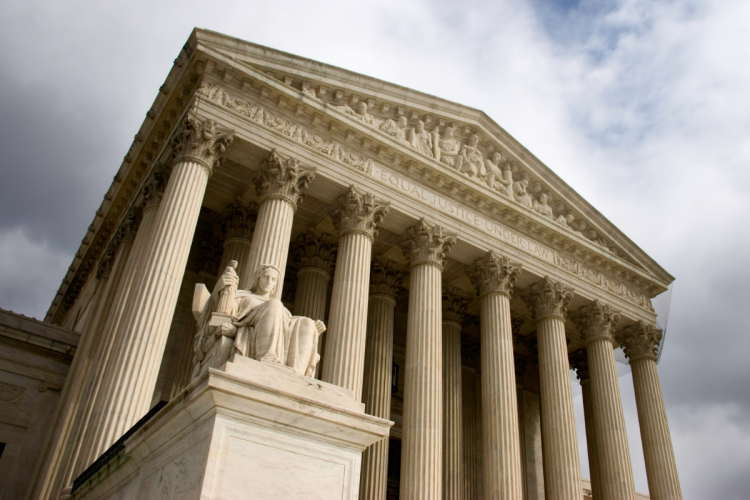Recent franchise disputes: Key takeaways for franchisors and franchisees

With Alberta’s Franchises Act having recently turned 30 years old and Ontario’s Arthur Wishart Act approaching its 25th anniversary, the general principles governing franchising disputes are well-settled on paper. Saskatchewan’s franchise legislation, now set to come into force on June 30, 2026, largely follows the requirements and language of the franchise legislation in other provinces (with some exceptions).
With that said, new disputes continue to refine how Canadian courts apply these principles. Three recent franchised-focused decisions across Ontario and Alberta offer timely guidance on urgent injunctions in the franchise context and the scope and engagement of the duty of fair dealing, and what franchisors and franchisees should take from them. By examining these decisions, we can find some key operational and strategic takeaways for franchisors and franchisees.
Goodbye Graffiti: Injunction denied to terminated franchisee
In Kalbow Restorations Inc. v. Goodbye Graffiti Inc., 2025 ONSC 3696, a franchisor in the graffiti-removal business terminated its franchise agreement with a franchisee in Ontario. The franchisee brought an urgent motion for an injunction to “restore” the franchisor-franchisee relationship pending the trial of the franchisee’s lawsuit, arguing that the franchisor did not have valid grounds to terminate. The motion was heard a few weeks after the termination.
To obtain a mandatory interim injunction (before trial), a party must typically show:
- a strong prima facie case (i.e. that their position has merit and is likely to eventually succeed at a trial)
- irreparable harm (i.e. harm that cannot be quantified or which cannot be cured with an award of damages) if the injunction was not granted
- that the “balance of convenience” between the respective parties favours granting the order
In this case, the franchisee failed on all three grounds:
- No strong case – The Court found that the franchisee had sold unauthorized services and products and mislabeled them as “franchisor” or franchisor-approved – each of which was an “incurable material default” of the terms of the franchise agreement justifying termination. The Court also found that the franchisee had acted in a dishonest manner by mis-labelling its product, which was a further incurable material default under the franchise agreement.
- No irreparable harm – The Court found the “harm” could be quantified as the franchisee’s lost profits. While loss of “goodwill” is sometimes accepted as a form of irreparable harm, the applicable franchise agreement stated that goodwill accrues exclusively to the franchisor and that the franchisee may not assert any claim to the goodwill of the business.
- Balance of convenience – The franchisor was found to potentially suffer greater harm if forced to allow an unauthorized operator to continue to use its name and trademarks (potentially for many more years) pending trial.
The Court also dismissed the franchisee’s arguments that other franchisees also used unauthorized products and engaged in similar conduct and that the franchisor’s inspections were disruptive. Accordingly, the Court denied the injunction and awarded the franchisor their partial legal costs of $100,000.
Chatters: No injunction without proof of irreparable harm
On the flip side, it was the franchisor (not the franchisee) that sought an injunction in the Alberta case of Chatters Limited Partnership v. Chatters Deerfoot Meadows Limited, 2025 ABKB 536.
The franchisor (Chatters) sought to stop its former franchisee from operating a new, competing salon. The franchise agreement contained a two year, 10 mile from the location of the salon non-compete clause.
The Alberta Court accepted that the franchisee’s new salon business was “similar” to the former franchise, but dismissed the franchisor’s injunction application, emphasizing that a party must have a “proprietary or legitimate interest” to show a strong prima facie case that they are entitled to enforce a non-competition clause, and show clear evidence of irreparable harm:
- No legitimate or proprietary interest – In this case, there was no longer any Chatters salon in the restricted area (Seton area of Calgary). The Court determined that Chatters’ interest in protecting a potential future Chatters salon in the area was not a sufficient objective to warrant an injunction. The franchisor had not established that it had any specific intention or desire to open a franchise within the Seton area during the term of the non-compete clause (which would end on July 1, 2026).
- Insufficient trade-secret evidence: While trade secrets could theoretically give rise to a legitimate interest warranting protection, this cannot be assumed. The franchisor failed to present “robust evidence” that its franchise system contains trade secrets worthy of protection through a non-competition clause or that the new salon was using any customer connections, confidential information goodwill, branding, names, trademarks, strategies, pricing models and/or methods of operation justifying a broad restriction.
- Overbroad geographic scope – For a non-competition clause to be enforceable, generally it must be limited in scope, duration and geography as considered reasonably necessary for the protection of the legitimate interests of the franchisor. The average distance between Chatters salons in Calgary is only approximately three miles. Accordingly, the Court found the geographic scope (10 miles from the salon location) was not reasonable in the circumstances.
- No irreparable harm – The Court found there was insufficient evidence that any temporary loss market share would not be recoverable without an injunction. Lost profits were calculable and there was no evidence of damages to Chatters’ trademarks, reputation or goodwill.
The injunction motion was therefore dismissed with costs awarded to the former franchisee.
BMW Canada: Fair dealing and proper documentation
In Avante Automobile (2017) Corporation v. BMW Canada Inc., 2025 ONSC 87, the Court considered the duty of fair dealing that applies to the performance and enforcement of every franchise agreement in Ontario.
A BMW dealership’s franchise agreement, set to expire on June 1, 2014, was extended orally by the parties for a further 10 months at a lunch meeting a few days before its expiry. The franchisees continued to operate (and renovate) the premises beyond that period, and when the franchisor later refused further extensions in May of 2016, the franchisee claimed the termination breached fair dealing obligations on the part of the franchisor and attempted to sell the business to a third party (the latter of which led to a separate dispute that is the subject of separate litigation).
The Court agreed, finding that the franchisor’s failure to properly document the extensions effectively deprived the franchisee of clear awareness of the termination procedures under the franchise agreement. As such, the franchisor was found to have breached its obligations of fair dealing and was found liable for the manner in which it terminated the franchise agreement.
Each side delivered expert evidence regarding scope of damages. Among other things, the Court preferred the franchisor’s expert evidence which was based upon previous sales of automobile dealerships and then, after accounting for appropriate set-offs due to the franchisor for deposits accepted by the franchisee for the sale to a third party, the Court found that no “net” amount was ultimately payable to the franchisee parties. Nevertheless, the case underscores that oral extensions or informal amendments to franchise agreements expose franchisors to fair-dealing risk.
Conclusions
Going forward, franchisors and franchisees should keep in mind that urgent injunction orders will not be granted lightly and must be supported by evidence of irreparable harm. Future lost profits are not enough. Incorporating reasonable legal protections into a franchise agreement, including non-competition requirements that are reasonable in duration, scope and geographic area, can help protect a franchisor seeking to terminate or enforce a franchise agreement.
Further, franchisors should be mindful that the duty of fair dealing requires them to properly document extensions to franchise agreements.
If you’re a franchisor or franchisee with questions about the enforcement of franchise agreements, the dispute resolution processes in franchise systems, franchise laws or franchise litigation, please contact a member of our franchise law team – we can help.
Note: This article is of a general nature only and is not exhaustive of all possible legal rights or remedies. In addition, laws may change over time and should be interpreted only in the context of particular circumstances such that these materials are not intended to be relied upon or taken as legal advice or opinion. Readers should consult a legal professional for specific advice in any particular situation.




